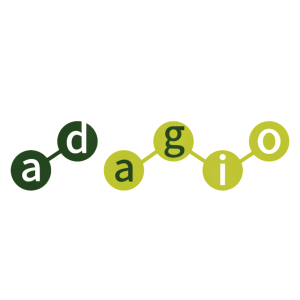Scientist Dr. Akiko Iwasaki Joins SPEAR Study Group to Investigate Monoclonal Antibodies for Long COVID and COVID-19 Post-Vaccination Syndrome
Rhea-AI Summary
Invivyd (Nasdaq: IVVD) has announced that Dr. Akiko Iwasaki, Professor of Immunobiology at Yale School of Medicine, has joined the SPEAR Study Group. The group was established to investigate the biology and clinical implications of persistent spike protein from SARS-CoV-2 virus and COVID-19 vaccines.
Dr. Iwasaki, co-Lead Investigator of the Yale COVID-19 Recovery Study, brings expertise in viral pathogenesis and post-viral conditions. The SPEAR Study Group was formed following reports that PEMGARDA® (pemivibart), Invivyd's FDA-authorized monoclonal antibody, showed potential benefits in Long COVID cases. The group plans to conduct clinical trials to evaluate monoclonal antibodies, including VYD2311, for treating Long COVID and Post-Vaccination Syndrome (PVS).
Positive
- Addition of renowned immunology expert Dr. Akiko Iwasaki strengthens research capabilities
- Potential expansion of PEMGARDA's applications into Long COVID treatment
- Company positioning for clinical trials with next-generation antibody VYD2311
Negative
- PEMGARDA is not currently authorized for Long COVID treatment
- Benefits reported are only anecdotal and require formal clinical validation
News Market Reaction
On the day this news was published, IVVD gained 5.26%, reflecting a notable positive market reaction. Argus tracked a trough of -7.8% from its starting point during tracking. Our momentum scanner triggered 14 alerts that day, indicating notable trading interest and price volatility. This price movement added approximately $5M to the company's valuation, bringing the market cap to $102M at that time.
Data tracked by StockTitan Argus on the day of publication.
WALTHAM, Mass., July 23, 2025 (GLOBE NEWSWIRE) -- Invivyd, Inc. (Nasdaq: IVVD), today announced the addition of Akiko Iwasaki, Ph.D., Professor of Immunobiology at Yale School of Medicine, to the SPEAR (Spike Protein Elimination and Recovery) Study Group. The SPEAR Study Group was launched earlier this month to focus on the biology and clinical disease or injury associated with persistent presence of spike antigen from SARS-CoV-2 virus or COVID-19 vaccines.
Dr. Iwasaki is internationally recognized for her groundbreaking research on viral pathogenesis, human immunobiology, and post-viral chronic conditions, including Long COVID and COVID-19 Post-Vaccination Syndrome (PVS). Dr. Iwasaki is the co-Lead Investigator of the Yale COVID-19 Recovery Study, which investigates how vaccination may alter the immune response in individuals with Long COVID. She also leads several groundbreaking studies into the pathobiology of Long COVID including the Yale LISTEN study and the Mount Sinai-Yale Long COVID study. Her recent work has helped shape the scientific understanding of how persistent SARS-CoV-2 spike protein or viral reservoirs may contribute to the ongoing symptoms in both Long COVID and PVS.
“We are honored to have Dr. Iwasaki join the SPEAR Study Group,” said Marc Elia, Chairman of the Board at Invivyd. “Her scientific leadership, particularly in defining immune responses in post-viral syndromes, brings invaluable insight to this urgent effort. As COVID-19 continues to affect millions of Americans—especially those with lingering or vaccine-related symptoms—Invivyd is leading the effort with monoclonal antibody technology, one of the most transformative breakthroughs in modern medicine, to drive progress forward because people deserve more than hope—they deserve real options."
The SPEAR Study Group was established in response to multiple independent case reports and reported case series from across the U.S. suggesting symptom improvement / remission of Long COVID in individuals with Long COVID following administration of PEMGARDA® (pemivibart), a broadly neutralizing monoclonal antibody currently authorized by the U.S. FDA for the prevention of COVID-19 in certain immunocompromised individuals. PEMGARDA is not authorized for the treatment of Long COVID. Early anecdotal evidence supports a growing body of mechanistic research pointing to persistent SARS-CoV-2 spike protein or other forms of persistent virus or viral material as a potential therapeutic target. The SPEAR Study Group will structure and guide anticipated clinical trials to rigorously assess the safety and exploratory efficacy of monoclonal antibodies in individuals with Long COVID and PVS.
The SPEAR Study Group is actively working toward launching multi-center translational clinical research on Long COVID and PVS using next-generation antibodies like Invivyd’s investigational monoclonal antibody candidate VYD2311.
About PEMGARDA
PEMGARDA® (pemivibart) is a half-life extended investigational monoclonal antibody (mAb). PEMGARDA was engineered from adintrevimab, Invivyd’s investigational mAb that has a robust safety data package and provided evidence of clinical efficacy in global Phase 2/3 clinical trials for the prevention and treatment of COVID-19. PEMGARDA has demonstrated in vitro neutralizing activity against major SARS-CoV-2 variants, including JN.1, KP.3.1.1, XEC and LP.8.1. PEMGARDA targets the SARS-CoV-2 spike protein receptor binding domain (RBD), thereby inhibiting virus attachment to the human ACE2 receptor on host cells.
PEMGARDA (pemivibart) injection (4500 mg), for intravenous use is an investigational mAb that has not been approved, but has been authorized for emergency use by the U.S. FDA under an EUA for the pre-exposure prophylaxis (prevention) of COVID-19 in adults and adolescents (12 years of age and older weighing at least 40 kg) who have moderate-to-severe immune compromise due to certain medical conditions or receipt of certain immunosuppressive medications or treatments and are unlikely to mount an adequate immune response to COVID-19 vaccination. Recipients should not be currently infected with or have had a known recent exposure to an individual infected with SARS-CoV-2.
PEMGARDA is not authorized for use for treatment of COVID-19, treatment of Long COVID, or post-exposure prophylaxis of COVID-19. Pre-exposure prophylaxis with PEMGARDA is not a substitute for vaccination in individuals for whom COVID-19 vaccination is recommended. Individuals for whom COVID-19 vaccination is recommended, including individuals with moderate-to-severe immune compromise who may derive benefit from COVID-19 vaccinations, should receive COVID-19 vaccination. In individuals who have recently received a COVID-19 vaccine, PEMGARDA should be administered at least 2 weeks after vaccination.
Anaphylaxis has been observed with PEMGARDA and the PEMGARDA Fact Sheet for Healthcare Providers includes a boxed warning for anaphylaxis. The most common adverse reactions included systemic infusion-related reactions and hypersensitivity reactions, local infusion site reactions, and infusion site infiltration or extravasation. For additional information, please see the PEMGARDA full product Fact Sheet for Healthcare Providers, including important safety information and boxed warning.
To support the EUA for PEMGARDA, an immunobridging approach was used to determine if PEMGARDA may be effective for pre-exposure prophylaxis of COVID-19. Immunobridging is based on the serum virus neutralizing titer-efficacy relationships identified with other neutralizing human mAbs against SARS-CoV-2. This includes adintrevimab, the parent mAb of pemivibart, and other mAbs that were previously authorized for EUA. There are limitations of the data supporting the benefits of PEMGARDA. Evidence of clinical efficacy for other neutralizing human mAbs against SARS-CoV-2 was based on different populations and SARS-CoV-2 variants that are no longer circulating. Further, the variability associated with cell-based EC50 value determinations, along with limitations related to pharmacokinetic data and efficacy estimates for the mAbs in prior clinical trials, impact the ability to precisely estimate protective titer ranges. Additionally, certain SARS-CoV-2 viral variants may emerge that have substantially reduced susceptibility to PEMGARDA, and PEMGARDA may not be effective at preventing COVID-19 caused by these SARS-CoV-2 viral variants.
The emergency use of PEMGARDA is only authorized for the duration of the declaration that circumstances exist justifying the authorization of the emergency use of drugs and biological products during the COVID-19 pandemic under Section 564(b)(1) of the Federal Food, Drug, and Cosmetic Act, 21 U.S.C. § 360bbb-3(b)(1), unless the declaration is terminated or authorization revoked sooner. PEMGARDA is authorized for use only when the combined national frequency of variants with substantially reduced susceptibility to PEMGARDA is less than or equal to
About VYD2311
VYD2311 is a novel monoclonal antibody (mAb) candidate being developed for COVID-19 to continue to address the urgent need for new prophylactic and therapeutic options. The pharmacokinetic profile and antiviral potency of VYD2311 may offer the ability to deliver clinically meaningful titer levels through more patient-friendly means such as an intramuscular route of administration.
VYD2311 was engineered using Invivyd’s proprietary integrated technology platform and is the product of serial molecular evolution designed to generate an antibody optimized for neutralizing contemporary virus lineages. VYD2311 leverages the same antibody backbone as pemivibart, Invivyd’s investigational mAb granted emergency use authorization in the U.S. for the pre-exposure prophylaxis (PrEP) of symptomatic COVID-19 in certain immunocompromised patients, and adintrevimab, Invivyd’s investigational mAb that has a robust safety data package and demonstrated clinically meaningful results in global Phase 2/3 clinical trials for the prevention and treatment of COVID-19.
About Invivyd
Invivyd, Inc. (Nasdaq: IVVD) is a biopharmaceutical company devoted to delivering protection from serious viral infectious diseases, beginning with SARS-CoV-2. Invivyd deploys a proprietary integrated technology platform unique in the industry designed to assess, monitor, develop, and adapt to create best in class antibodies. In March 2024, Invivyd received emergency use authorization (EUA) from the U.S. FDA for a monoclonal antibody (mAb) in its pipeline of innovative antibody candidates. Visit https://invivyd.com/ to learn more.
Trademarks are the property of their respective owners.
Cautionary Note Regarding Forward-Looking Statements
This press release contains forward-looking statements within the meaning of the Private Securities Litigation Reform Act of 1995. Words such as “anticipates,” “believes,” “could,” “expects,” “estimates,” “intends,” “potential,” “predicts,” “projects,” and “future” or similar expressions (as well as other words or expressions referencing future events, conditions or circumstances) are intended to identify forward-looking statements. Forward-looking statements include statements concerning, among other things, expectations regarding the SPEAR Study Group and its anticipated focus and goals; the plans of the SPEAR Study Group to structure and guide anticipated clinical trials to assess the safety and exploratory efficacy of mAbs in individuals with Long COVID and PVS; the work of the SPEAR Study Group toward launching multi-center translational clinical research on Long COVID and PVS using next-generation antibodies like Invivyd’s mAb candidate VYD2311; expectations regarding the COVID-19 landscape; statements about the potential of mAb therapy to offer a therapeutic approach to Long COVID; statements about a growing body of mechanistic research pointing to persistent SARS-CoV-2 spike protein or other forms of persistent virus or viral material as a potential therapeutic target; expectations regarding the capability of Invivyd to explore the Long COVID space; whether pemivibart may have potential in addressing symptoms in some Long COVID patients; the potential of PEMGARDA as a mAb for pre-exposure prophylaxis (prevention) of COVID-19 in certain adults and adolescents who have moderate-to-severe immune compromise; the potential of VYD2311 as a novel mAb candidate; the company’s devotion to delivering protection from serious viral infectious diseases, beginning with SARS-CoV-2; and other statements that are not historical fact. The company may not actually achieve the plans, intentions or expectations disclosed in the company’s forward-looking statements and you should not place undue reliance on the company’s forward-looking statements. These forward-looking statements involve risks and uncertainties that could cause the company’s actual results to differ materially from the results described in or implied by the forward-looking statements, including, without limitation: the timing, progress and results of the SPEAR Study Group, and the company’s discovery, preclinical and clinical development activities; the risk that results of nonclinical studies or clinical trials may not be predictive of future results, and interim data are subject to further analysis; unexpected safety or efficacy data observed during preclinical studies or clinical trials; the predictability of clinical success of the company’s product candidates based on neutralizing activity in nonclinical studies; potential variability in neutralizing activity of product candidates tested in different assays, such as pseudovirus assays and authentic assays; variability of results in models and methods used to predict activity against SARS-CoV-2 variants; whether the epitope that pemivibart and VYD2311 targets remains structurally intact; whether the company’s product candidates are able to demonstrate and sustain neutralizing activity against major SARS-CoV-2 variants, particularly in the face of viral evolution; whether mAb therapy is able to offer a therapeutic approach to Long COVID; the ability to gain alignment with the applicable regulatory authorities on clinical trial designs and regulatory pathways for COVID-19 mAbs, and the timing thereof; changes in the regulatory environment; uncertainties related to the regulatory authorization or approval process, and available development and regulatory pathways; future clinical trial site activation or enrollment rates; how long the EUA granted by the FDA for PEMGARDA will remain in effect and whether the EUA is revised or revoked by the FDA; the ability to maintain a continued acceptable safety, tolerability and efficacy profile of any product candidate following regulatory authorization or approval; changes in expected or existing competition; the company’s reliance on third parties; complexities of manufacturing mAb therapies; macroeconomic and political uncertainties; the company’s ability to continue as a going concern; and whether the company has adequate funding to meet future operating expenses and capital expenditure requirements. Other factors that may cause the company’s actual results to differ materially from those expressed or implied in the forward-looking statements in this press release are described under the heading “Risk Factors” in the company’s Annual Report on Form 10-K for the year ended December 31, 2024 and the company’s Quarterly Report on Form 10-Q for the quarter ended March 31, 2025, each filed with the Securities and Exchange Commission (SEC), and in the company’s other filings with the SEC, and in its future reports to be filed with the SEC and available at www.sec.gov. Forward-looking statements contained in this press release are made as of this date, and Invivyd undertakes no duty to update such information whether as a result of new information, future events or otherwise, except as required under applicable law.
This press release contains hyperlinks to information that is not deemed to be incorporated by reference in this press release.
Contacts:
Media Relations
(781) 208-1747
media@invivyd.com
Investor Relations
(781) 208-1747
investors@invivyd.com








